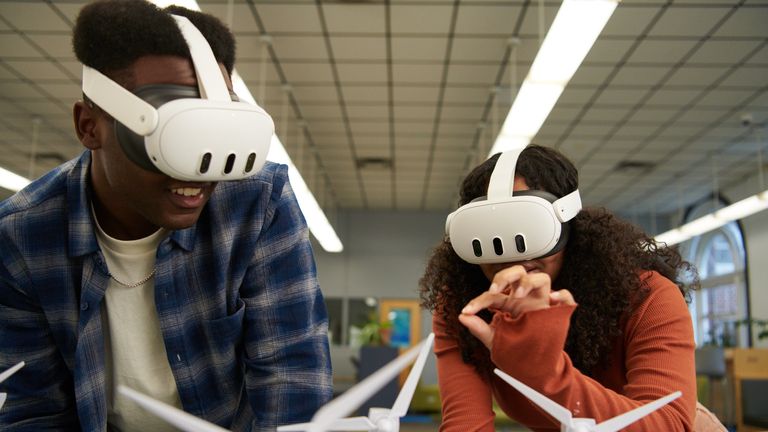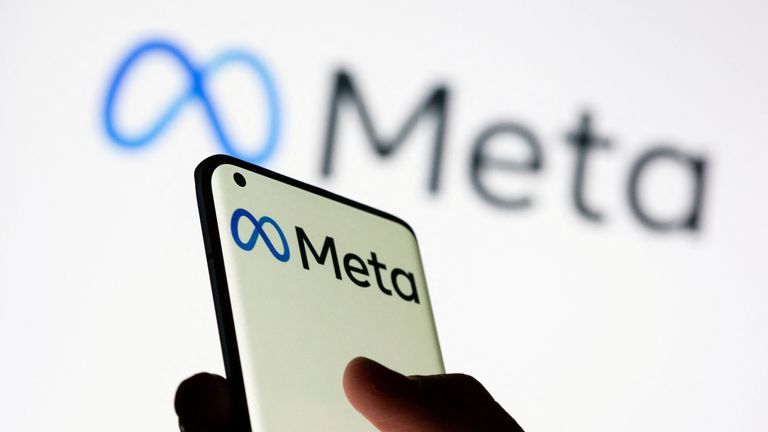Virtual reality headsets will not be used in schools under a new Meta program unless teachers can monitor what pupils are doing, Sir Nick Clegg has said amid growing concerns about children’s safety in the metaverse.
Mr Clegg said: “This will not be used in the classroom unless teachers feel they have complete visibility and control over what is happening.
“And most importantly, that parents, especially those of younger children, feel this way too, otherwise why would you use this in an educational setting?”
Meta announced a new package allowing schools to use virtual and augmented reality as a learning tool by allowing teachers to adapt the way they use VR headsets for multiple users at once in the classroom.
Students aged 13 and over will be able to access the metaverse into their classrooms for immersive lessons that allow them to visit museums, practice speaking different languages, or access 3D versions of environments they otherwise wouldn’t be able to access.
The company has also introduced a feature called “shared mode” in which children will not be able to access the Meta Quest store to download new apps or games and other users will not know the identity of the user of the store. ‘school. Mr Clegg said.
He added: “It will be a much more engaged, participatory and immersive experience than is currently the case in the classroom and completely safe for that reason as teachers will be in full control.”
Metaverse is an umbrella term for immersive 3D virtual worlds in which people can interact with each other and create a shared space that many users access with a headset.
There are several metaverse platforms, including Fortnite, Roblox, and Meta’s Horizon Worlds.
The total number of monthly active users on Metaverse platforms reached 600 million by the end of 2023, according to figures released by Metaverse, the Metaverse consultancy.
The vast majority of metaverse users are children. Around 84% of users are under 18 years old and 51% of total users are 13 years old or younger.
Rani Govender, senior policy manager for children’s online safety at children’s charity NSPCC, said: “Young people should be protected in the online world, wherever they access it, and their safety and Their well-being should be at the forefront of Meta’s decisions if they want to develop. the use of these products for children.
“Children continue to experience unacceptable harm in the Metaverse and protections must be deployed at all levels so that young people who can potentially benefit from safer experiences at school are not put at risk when using the Meta products at home.”
Learn more:
Meta criticized after lowering WhatsApp minimum age
New Instagram safety tool will prevent children from receiving nude photos
Mr Clegg acknowledged that cost would be a barrier for some schools.
He said: “Whenever you have a new technology, whether it’s a calculator or a whiteboard, which gradually becomes a general education system, you always have a problem of early adoption, that is, the technology tends to be more expensive at first than it is. It’s at the end that the volume increases.
“So it’s easier for schools and colleges with more resources to use the technology sooner rather than later. All we can do is try to make the technology as affordable as possible.”
The educational product is expected to be launched by Meta later this year.





